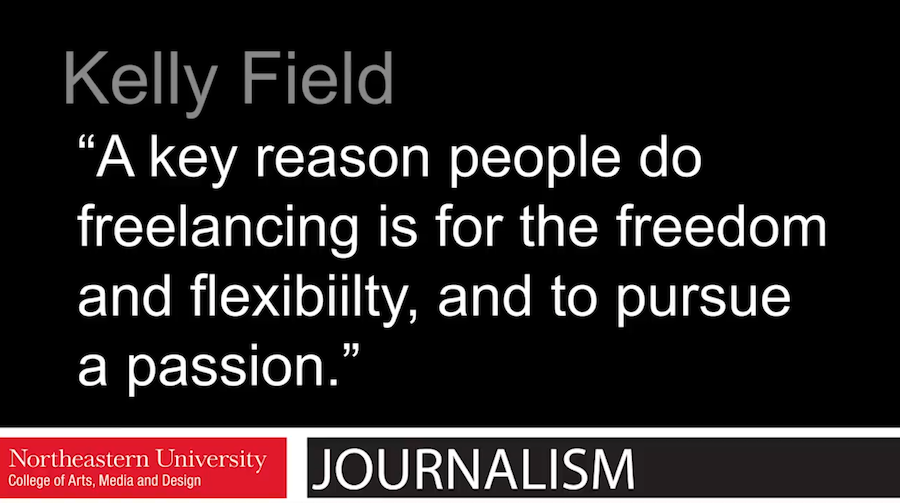“A key reason people do freelancing is for the freedom and flexibility, and to pursue a passion”
Freelance reporting might sound like the ideal job, with flexible hours and the option to work from home, in pajamas no less. But freelancer Kelly Field presented a more nuanced look at the world of freelance journalism.
Field spoke on Oct. 17 at “Pizza, Press & Politics,” a weekly speaker series sponsored by the Northeastern University School of Journalism in Boston.
Field, who has a master’s degree in print journalism from Boston University, turned to freelancing after working at a number of publications, including the Lawrence Eagle Tribune, the Congressional Quarterly, and a 13-year stint at the Chronicle of Higher Education.
She turned to freelancing after a move back to Boston. It wasn’t long before she realized that it could be both a blessing and a burden.
“My commute is 11 stairs,” Field laughed. The mother of two cited flexibility, increased family time and the freedom to pursue passion projects as the biggest advantages of working as a freelancer. She also started with the advantage of having a contract with the Chronicle for freelance projects.
However, freelancing comes at the cost of taking a huge step back in terms of salary and perks. Moreover, working from home takes considerable discipline and time management skills. An important lesson she learned was, “how to say no and put only as much time as you think is worth it.”
She also cautioned that it’s not easy for a new writer to start out as a freelancer. The lack of a stable source of income, combined with very little work experience, are just two additional obstacles on the uphill road.
Field said she benefited by first working full time. That meant she had good rapport with editors and had established a network of publications to sell to.
The seasoned freelancer also warned of the loneliness that sets in from not having colleagues to chat with and the potential for missing out on great mentoring opportunities.





